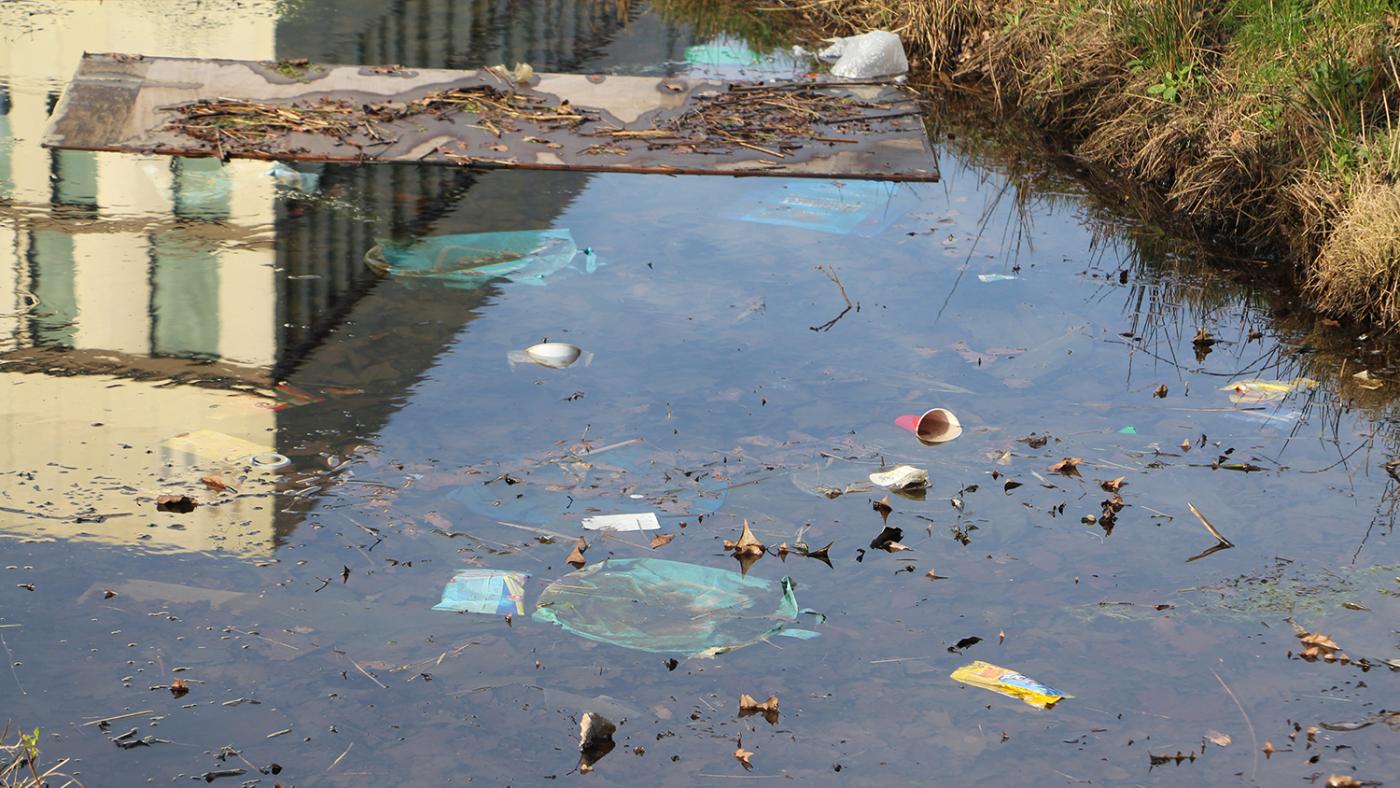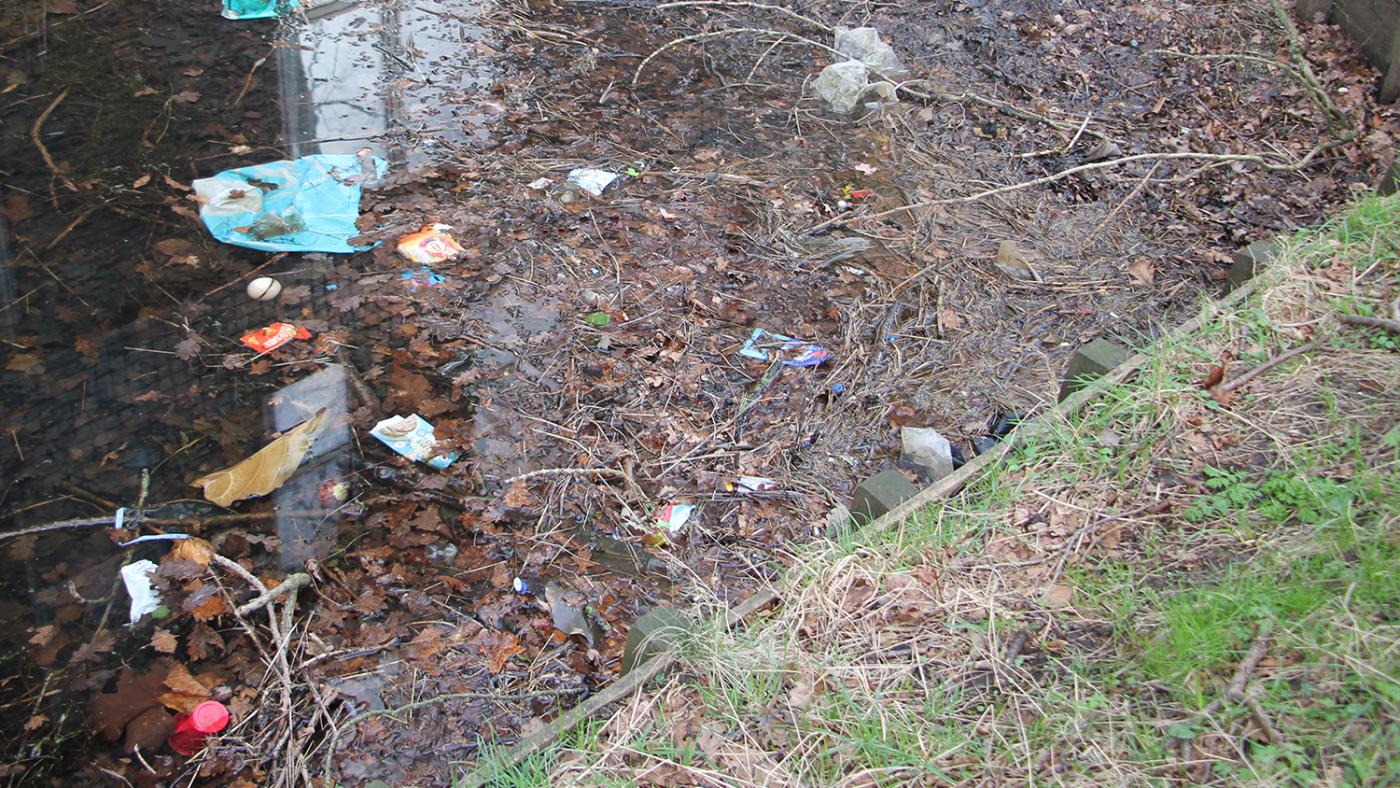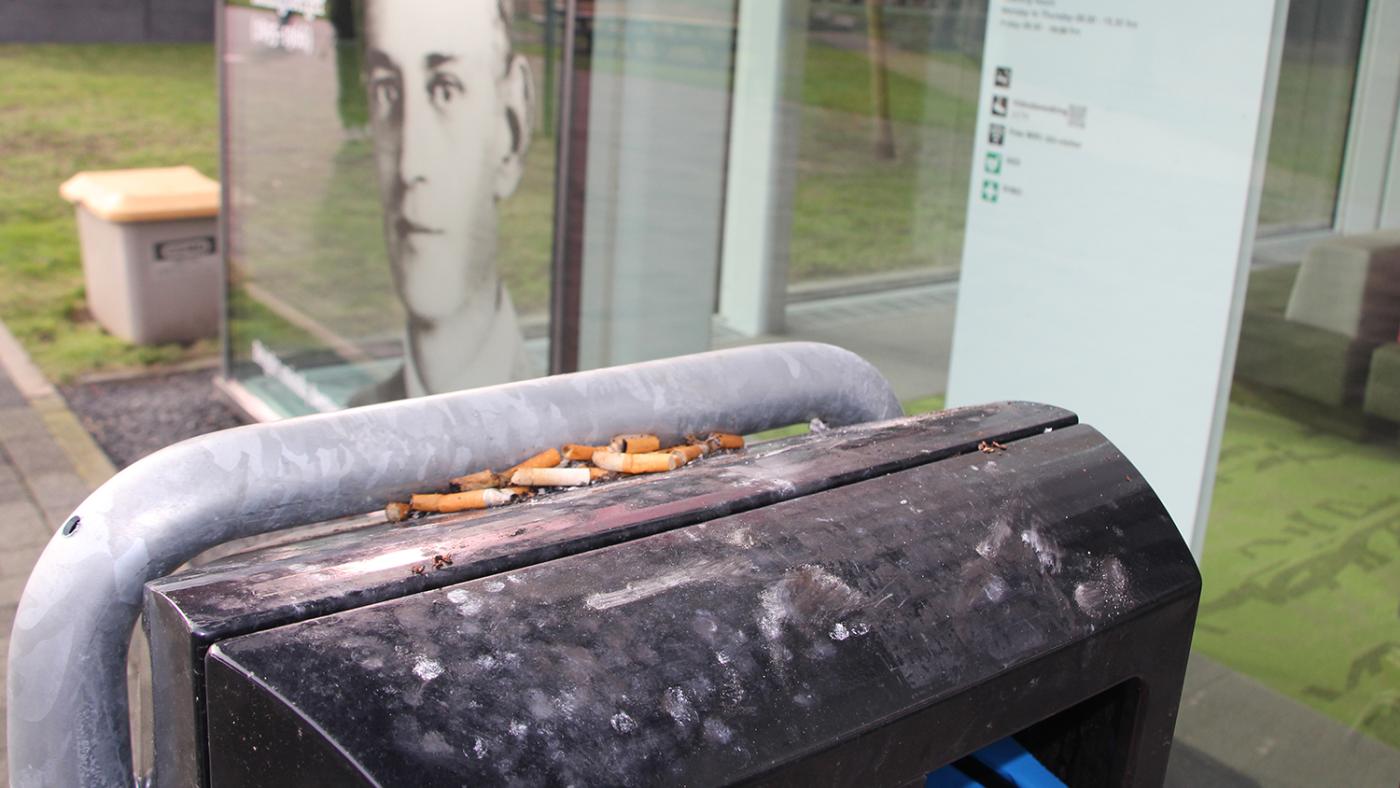Amount of litter at Utrecht Science Park is getting annoying
SSH and UU take action to clean up litter

Rutger-Jan Scholtens is a trainer and career coach working at Career Services. His e-mail focuses on the litter in the water. “If I see something on the street, I can pick it up, but I'm not going to take my wellies with me to go into the water,” he jokes. According to him, most "litter hotspots" can be found in the ditches along Bisschopsteeg, De Johanna and Cambridgelaan.
He showed those "hotspots" to DUB while going for a walk with one of its journalists. He stopped by the water in front of the blue and white student housing complex best known as De Joanna. “Recently, there was a whole fence here,” Scholtens indicates. He soon spotted it, covered in leaves and other household waste. Furthermore, it looked as if someone had emptied a bag of household waste into the ditch. There were empty microwave meal packages, plastic bags and a bag of protein powder in the water.
“It's a lot of cumulative litter,” says Scholtens. “Something is added every week. I think it also has to do with the amount of people who live here. People assume that others will take responsibility.”
SSH
The amount of litter in the water around SSH buildings is eye-catching. SSH acknowledges the problem when asked to comment on it. The student housing provider is responsible for keeping the grounds of its housing complexes clean, which means up until the paving. SSH states that it is not responsible for the waste in the ditches.
However, the organisation wants to contribute to solving the problem. They believe that their tenants can act as an additional pair of eyes, which is why they intend to promote the "smart reporting app" created by the municipality using a poster. That's an app that people living in Utrecht can use to report litter.

University
“The ditches are cleaned by a landscaping company hired by the university,” says Henk Legger, an Outdoor Space & Maintenance manager at UU. “A third party is responsible for the inspections. If it is not clean enough, the landscaping company will be fined. The big disadvantage of that model is that inspections only happen once a month, not every day,” he explains. “We want to have a clean campus every day, of course.”
It may be true that a lot of waste accumulates in the ditches, Legger acknowledges. “The contract states that they must be cleaned once every three months. So, if you happen to look at them the day before they're cleaned, there will be a considerable amount of waste.”
Notifications can help the landscaping company to make additional efforts. Scholtens' email was discussed in Leggers' weekly meeting, which resulted in an earlier cleaning. “Students and employees should report litter through Topdesk and we will then take it up with the company,” says Legger.
Other garbage bins
In Scholtens' view, closed waste bins would help significantly. “Jackdaws are smart animals, they climb into the garbage bins and take out all kinds of things to eat,” he says. “A lid would prevent this.”
According to Legger, waste bins with a smaller opening would be more helpful in solving the problem than closed ones. The latter needs to be cleaned more often because the lid gets dirty quickly. “And those are expensive hours,” he explains. According to him, a trial has been done with waste bins with a lid and there was “no indication that they work better than bins with a smaller opening.” That's why the university decided to replace the bins on campus for models with smaller openings.

Cigarette butts in front of buildings
Scholtens is not the only one who is bothered by all the litter on campus. Isolde de Jong, a Master's student of Pharmacy, is annoyed by the number of cigarette butts in front of the buildings. “You cannot ignore it, especially in front of Educatorium and the University Library,” she says. “When I walked out of the Educatorium after my exam, I think there were five hundred cigarette butts there.”
In her view, the entrance to Educatorium is missing waste bins. Isolde doesn't understand that. “The university administration walks past this too, so why don't they do anything about it?”
Facility Manager Sandra Kampmann observes that a smoking ban applies throughout USP. “We can't do anything about that, it's just legislation.” If there were any trash cans, they would encourage people to smoke.
It is not easy to enforce the smoking ban, however. It costs a lot of money to hire people to call smokers out on their behaviour. According to Kampmann, this money would be better employed for education. She believes that “employees and students should address each other”. After all, she continues, “the smoking policy belongs to all of us.”
UU has hired Peukenzee, a company that collects cigarette butts every month and encourages smokers not to throw butts on the ground. There are also two smoking areas on campus, which are municipal property. The smoking ban does not apply there. Utrecht University is currently fighting against the smoking ban because it cannot be enforced.